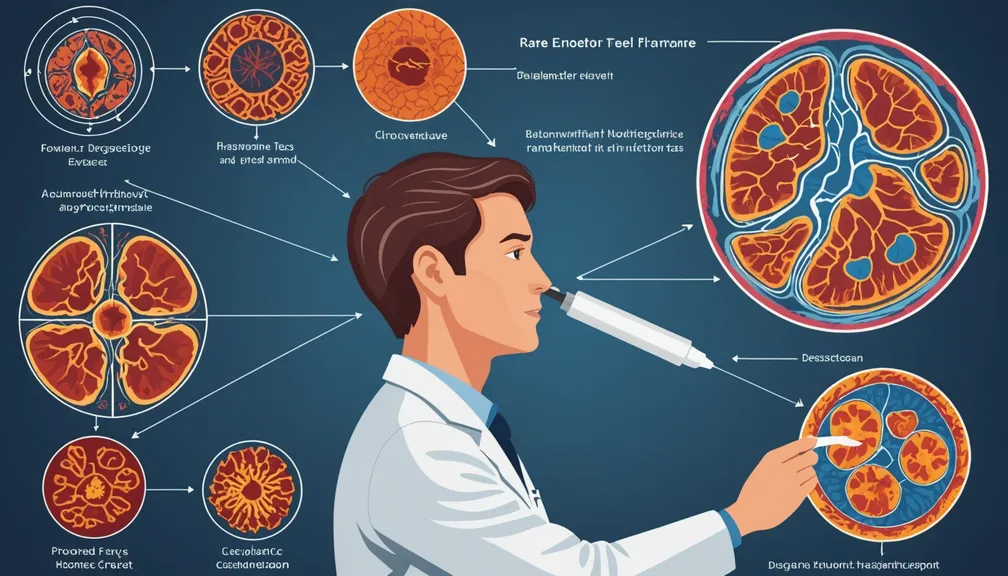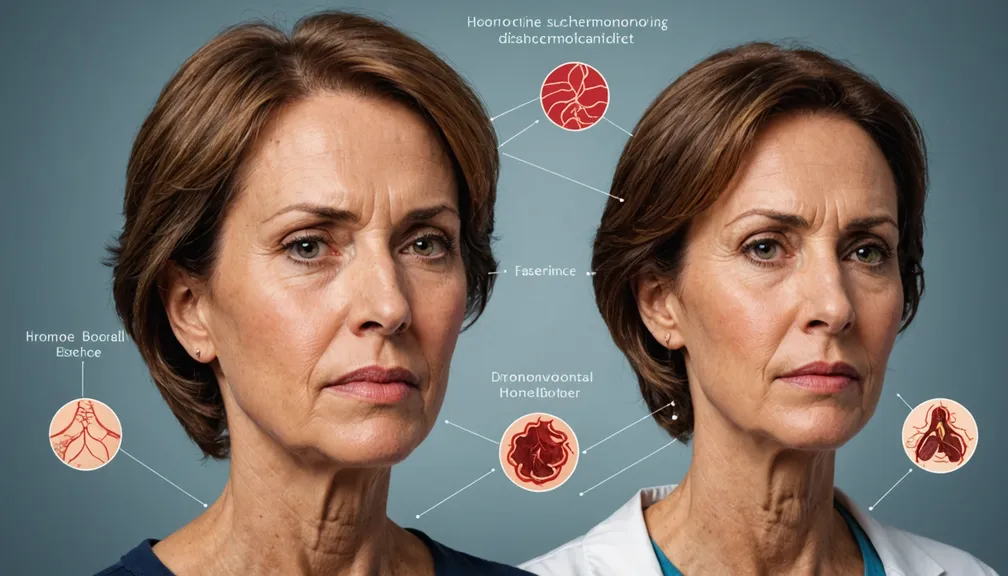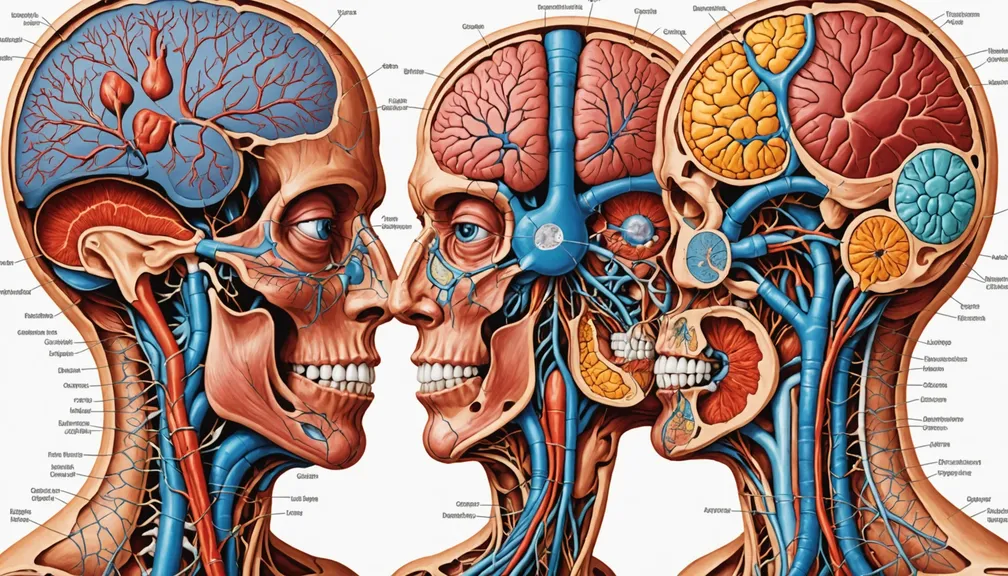Understanding Your Symptoms
Living with a rare endocrine disorder means your body’s hormone-producing glands are not functioning as they should. This imbalance can cause a variety of symptoms that may affect your daily life. Understanding these symptoms is the first step in managing them effectively.
-
Fatigue and Weakness: Feeling constantly tired or weak can be a common symptom. It’s important to recognize when rest is needed and to balance activity with adequate rest.
-
Weight Changes: Unexplained weight gain or loss may occur. Monitoring your weight regularly can help you and your healthcare team make necessary adjustments to your treatment plan.
-
Mood Swings and Mental Health: Hormonal imbalances can affect your mood, leading to feelings of anxiety, depression, or irritability. Acknowledging these changes is crucial for seeking appropriate support.
Medication Management
Proper use of medications is essential in controlling hormone levels and alleviating symptoms.
-
Follow Prescribed Regimens: Take your medications exactly as prescribed by your doctor. Do not skip doses or alter the dosage without consulting your healthcare provider.
-
Understand Your Medications: Learn about the medications you are taking, including their purpose, potential side effects, and how they interact with other treatments.
-
Set Reminders: Use pill organizers or set alarms to help you remember to take your medications on time.
-
Regular Check-Ups: Attend all scheduled appointments to allow your doctor to monitor your progress and make any necessary adjustments to your treatment plan.
Lifestyle Modifications
Making changes to your daily routine can help manage symptoms and improve your overall well-being.
Diet and Nutrition
-
Balanced Diet: Ensure your diet includes a variety of fruits, vegetables, lean proteins, and whole grains to support your body’s needs.
-
Monitor Nutrient Intake: Certain endocrine disorders may require specific dietary adjustments, such as reducing salt intake in Addison’s disease or managing calcium levels in multiple endocrine neoplasia.
-
Stay Hydrated: Drinking enough water is essential for overall health and can help mitigate some symptoms of hormonal imbalances.
Exercise
-
Regular Physical Activity: Engage in moderate exercise, such as walking, swimming, or yoga, to boost energy levels and improve mood.
-
Tailor Your Routine: Choose activities that suit your energy levels and physical capabilities. Avoid overexertion, especially on days when symptoms are more severe.
-
Consistency is Key: Aim to maintain a regular exercise schedule to help stabilize your hormone levels and enhance physical fitness.
Stress Management
-
Mindfulness and Relaxation Techniques: Practices like meditation, deep breathing exercises, and progressive muscle relaxation can help reduce stress and improve emotional well-being.
-
Time Management: Organize your daily tasks to prevent feeling overwhelmed. Prioritize activities and take breaks when needed.
-
Seek Support: Talking to friends, family, or a counselor can provide emotional support during challenging times.
Monitoring Your Health
Keeping track of your health is vital in managing a rare endocrine disorder effectively.
-
Regular Blood Tests: Routine testing helps monitor hormone levels and detect any imbalances early.
-
Symptom Diary: Keeping a daily record of your symptoms can help identify patterns and triggers, making it easier to discuss them with your healthcare provider.
-
Body Measurements: Regularly check your weight, blood pressure, and other relevant measurements to stay informed about your health status.
Building a Support System
Having a network of support can make managing a rare endocrine disorder more manageable.
-
Family and Friends: Share your condition and needs with loved ones so they can offer understanding and assistance.
-
Support Groups: Joining a support group can connect you with others who are experiencing similar challenges, providing a sense of community and shared knowledge.
-
Healthcare Team: Establish a strong relationship with your healthcare providers, including your primary doctor, endocrinologist, and any specialists involved in your care.
When to Seek Medical Help
Recognizing when to contact your healthcare provider is crucial for preventing complications.
-
Severe Symptoms: If you experience intense fatigue, dizziness, severe pain, or significant changes in your condition, seek medical attention immediately.
-
Medication Side Effects: Report any adverse reactions or unexpected side effects from your medications to your doctor right away.
-
Mental Health Concerns: If you feel overwhelmed, experience persistent sadness, or have thoughts of harming yourself, reach out to a mental health professional or healthcare provider immediately.
Types of Healthcare Professionals to Consult
Managing a rare endocrine disorder often requires a team of specialized healthcare providers.
-
Endocrinologist: A specialist in hormone-related conditions who oversees your overall hormone management and treatment plan.
-
Primary Care Physician: Provides general health care, helps coordinate with specialists, and manages overall health concerns.
-
Dietitian or Nutritionist: Offers personalized dietary advice to ensure your nutritional needs are met and help manage symptoms related to your diet.
-
Mental Health Professional: Psychologists or counselors can assist in managing the emotional and psychological aspects of living with a rare disease.
-
Nurse Practitioner or Physician Assistant: Provides additional support in managing your treatment, medication, and daily health needs.
-
Physical Therapist: Helps create an exercise plan tailored to your physical capabilities and limitations, promoting mobility and strength.
Managing a rare endocrine disorder involves a combination of understanding your symptoms, adhering to treatment plans, making informed lifestyle changes, monitoring your health, building a support system, knowing when to seek help, and collaborating with a team of healthcare professionals. By taking these day-to-day strategies into account, you can lead a healthier and more balanced life despite the challenges of a rare endocrine condition.






